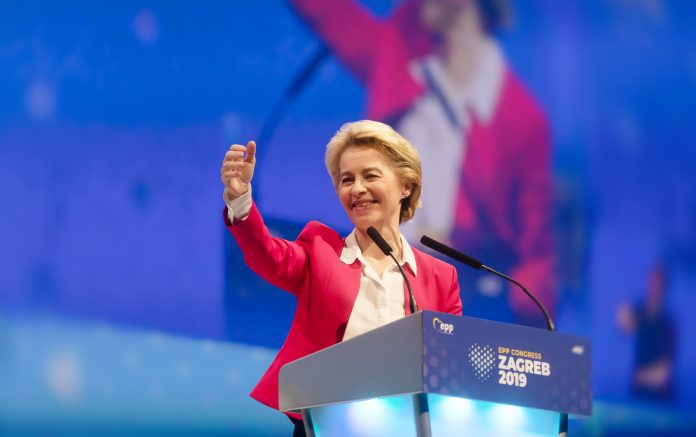President of the European Commission, Ursula Von Der Leyen, and President of the European Council, Charles Michel, formally signed the current Brexit deal today (24 January)
Early this Friday morning, EU leaders signed the current Brexit deal after months of volatile discussions that removed a Prime Minister for office and hijacked a general election.
Ursula Von Der Leyen offered little commentary, simply stating that the next phase would be ratification in EU Parliament.
.@eucopresident Charles Michel and I have just signed the Agreement on the Withdrawal of the UK from the EU, opening the way for its ratification by the European Parliament. pic.twitter.com/rEqnUnJA2E
— Ursula von der Leyen (@vonderleyen) January 24, 2020
The EU is set to take up negotiations on full speed on 25 February, when EU Ministers will attend a general affairs council and begin the next stage of planning a Brexit that functions well for everyone involved.
President of the European Council Charles Michel tweeted:
“Things will inevitably change but our friendship will remain.”
Currently, the Brexit deal put forward by Prime Minister Boris Johnson (created by Theresa May) has gained royal assent in the UK, making it law.
There were some internal debates in the UK about what went into the end-product Brexit Deal. Lord Alfred Dubs, a former child refugee fleeing Nazi persecution, created the legislation which allowed unaccompanied child refugees to find a home in the UK. It was removed on Wednesday (22 January) from the Brexit Deal along a party lines vote in the House of Commons, along with various other amendments made by the Lords.
What happens next in the EU?
MEPs will assemble on 29 January to vote on the Brexit Deal signed today (24 January), then EU diplomats will give written support. The UK will leave the EU at 11pm, UK time, on the 31st January.
However, this will leave the EU and the UK functioning exactly as we are now, for a period of 11 months. This is known as the ‘transition phase’, and we will have this time to really flesh out a functional deal on all fronts – not just economy and security.
Chief negotiator for the EU, Michel Barnier, continues to tweet out documents that are involved in discussions, apparently to create further transparency.
The EU is now preparing its mandate for the future relationship negotiations with the #UK. We are discussing the multiple areas that will need to be addressed. See the slides we use in our seminars here: https://t.co/5vv6dxNraq#transparency
— Michel Barnier (@MichelBarnier) January 21, 2020
Whilst UK leaders and EU leaders agree on the transition period being the final of final moments, some critics are unsure about the quality of negotiations in a relatively small window of time. Prime Minister Boris Johnson continues to say that his government have “ample” time to reach a conclusive and coherent agreement.




![Europe’s housing crisis: A fundamental social right under pressure Run-down appartment building in southeast Europe set before a moody evening sky. High dynamic range photo. Please see my related collections... [url=search/lightbox/7431206][img]http://i161.photobucket.com/albums/t218/dave9296/Lightbox_Vetta.jpg[/img][/url]](https://www.openaccessgovernment.org/wp-content/uploads/2025/04/iStock-108309610-218x150.jpg)






